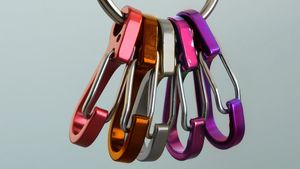A woman who donated an egg to her former partner will be allowed parental rights, the Florida Supreme Court ruled today.
The women, who were not identified in the ruling, were partnered when they decided to have a child, with one woman donating an egg to the other, who carried and delivered the child. After the women separated, the birth mother took their daughter and left for Australia without the consent of her former partner.
After tracking down the woman and child in Australia, the biological mother -- the egg donor -- sued for partial custody. Florida law, though, prevents sperm or egg donors from claiming parental rights to children born to other couples. Though lamenting the law, a trial judge ruled for the birth mother and denied rights to the biological mother. The case went to the state Supreme Court, where a majority of justices ruled Thursday that this case was different; the biological mother wasn't simply an egg donor, but an intended parent at the child's birth.
"The case represents a recognition of the fundamental right a parent has to parent their child, regardless of that parent's sexual orientation or the manner by which the child is conceived," Christopher Carlyle, a lawyer for the biological mother, told the Miami Herald. "You had a unique situation where there was no intent of our client to donate this biological material and then be out of the picture. They obviously intended to raise the child together."
Both women and the child now live in Florida. The biological mother has not seen her daughter, now 10 years old, in six years.
The American Civil Liberties Union of Florida and Lambda Legal filed an amicus brief in support of the biological mother.














































































